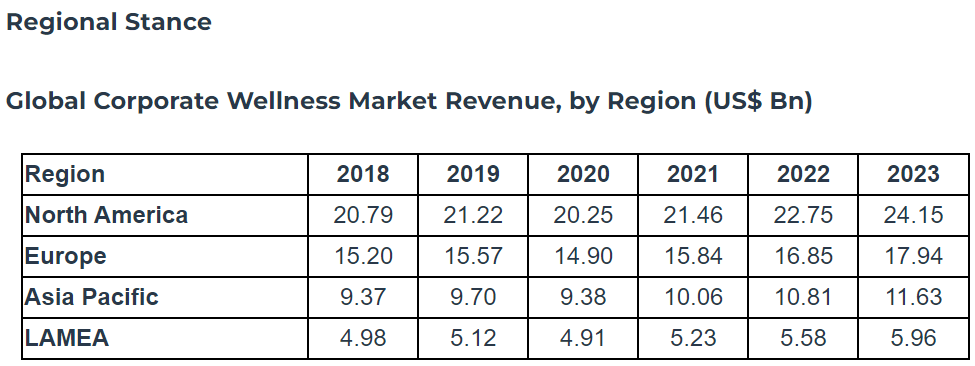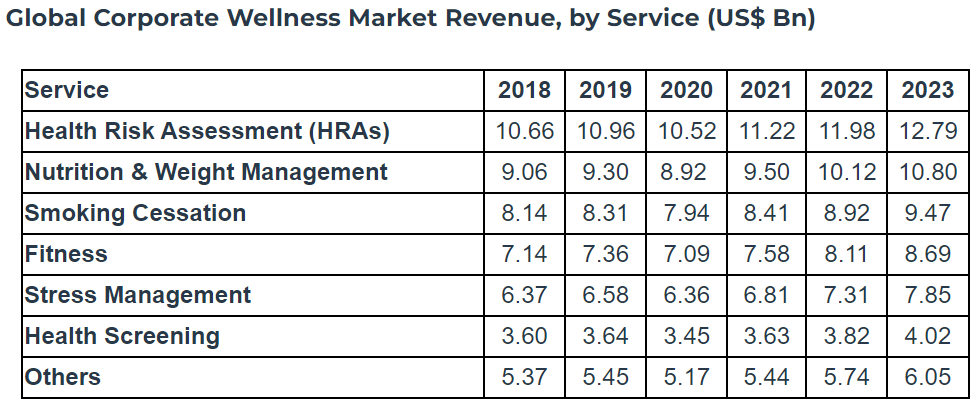
Corporate wellness market 'focusing on programs and services that improve employee health and productivity'

The global corporate wellness market size will more than double by the year 2032, according to a report from Precedence Research.
The market size will reach US$111.32 billion by 2032, up from US$63.68 billion for 2024, finds the report.
In Canada, the market size is projected to be US$ 4.83 billion by 2033, up from US$ 2.37 billion in 2023.
“The corporate wellness market is driven by growing awareness, changing workforce demographics, employee health, and productivity,” says Precedence Research in its report.
“The corporate wellness market is expanding, focusing on programs and services that improve employee health and productivity. These include physical activities, health exams, dietary advice, and stress management.”
The global corporate wellness market size is projected to expand at a high-value compound annual growth rate (CAGR) of 7.30% in the next eight years, according to the report.
This is good for business, according to the think tank.
“Investing in employee wellness can result in decreased healthcare expenses, higher productivity, improved morale, and lower absenteeism, trends such as remote work and a focus on mental wellness also impact the industry,” says Precedence Research. “As organizations prioritize employee health, the global corporate wellness market is projected to expand.”
Burnout will significantly impact businesses this year, according to 80% of global senior risk professionals surveyed back in 2023.
Regionally, North America continues to be the biggest spender on corporate wellness:

Source: Precedence Research
Health risk assessment (HRA) continued to be the primary concern of employers when it comes to wellness, according to Precedence Research:

Source: Precedence Research
Almost half of Canadians live with at least one major chronic disease, with the prevalence and number of chronic conditions increasing with age, GreenShield noted, citing data from Statistics Canada (StatCan).
A previous collaborative study being conducted by Canadian and American researchers showed how feelings of disadvantage affects employees’ ability to experience wellbeing in the workplace.